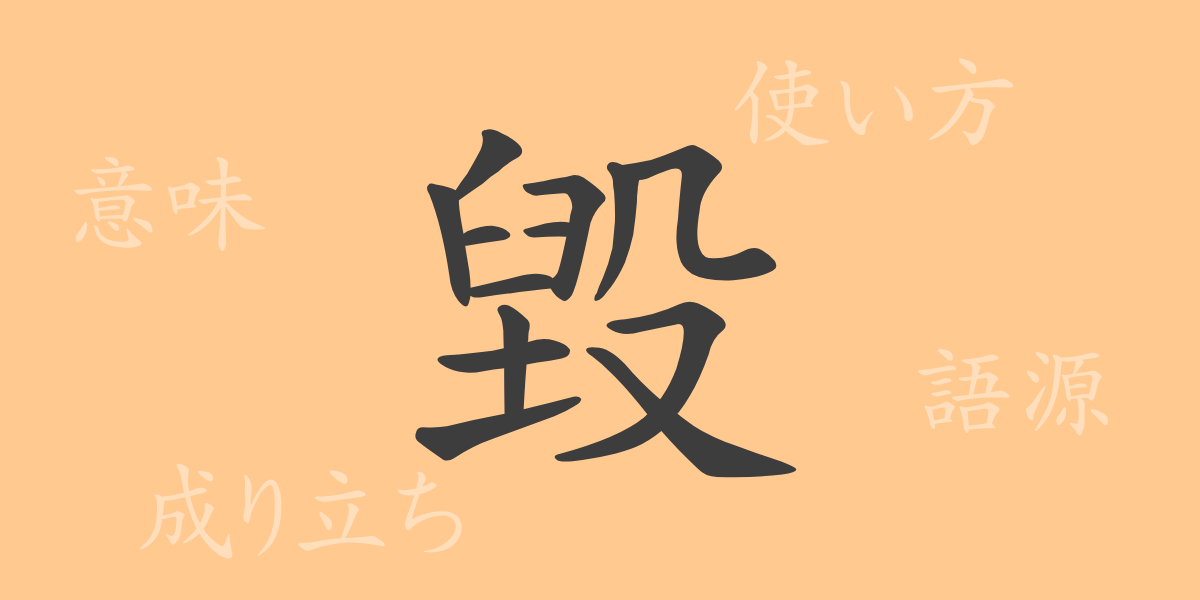The power of a single kanji character can stimulate our imagination through its shape and sound. Among the commonly used kanji in Japan, some have a deep history and meaning despite being infrequently used. “毀” (き, ki) is one such character. In this article, we will delve into the etymology of “毀” (き, ki), its modern usage, as well as its readings, stroke count, and related phrases and idioms.
The Origin (Etymology) of 毀
The kanji “毀” (き, ki) originated in ancient China. Its form is derived from the character “壞” (かい, kai), which depicts the act of demolishing a building’s wall. From the act of breaking walls, the meaning shifted to the destruction of objects, embedding meanings such as “to break” and “to damage” into “毀” (き, ki). Over time, it has come to be used not only for physical destruction but also in an abstract sense, such as damaging one’s honor or reputation.
Meaning and Usage of 毀
“毀” (き, ki) is used in a metaphorical sense to mean damaging a person’s honor or reputation, in addition to its direct meaning of destroying objects or buildings. This character is mainly used in negative contexts, conveying a strong nuance of actions that destroy and devalue something. While it is not very common in Japan, it can be seen in legal terms and specialized documents.
Readings, Stroke Count, and Radical of 毀
“毀” (き, ki) is a kanji character that is relatively rare in Japanese, but its structure and origins have an interesting background.
- Readings: The onyomi (音読み) reading is “キ” (ki), and the kunyomi (訓読み) readings are “こぼつ” (kobotsu) and “そしる” (soshiru).
- Stroke Count: “毀” (き, ki) consists of 13 strokes.
- Radical: The radical of “毀” (き, ki) is “殳” (ほこづくり, hokozukuri).
Phrases and Idioms Using 毀 and Their Meanings
Phrases, idioms, and proverbs that include “毀” (き, ki) are rare in Japan, but let’s look at a few examples.
- 毀誉褒貶 (きよほうへん, kiyohōhen): The fluctuation of a person’s reputation or evaluation, or the act of critiquing others.
- 自毀行為 (じきこうい, jikikōi): An act that damages one’s own position or honor through their actions.
- 名誉毀損 (めいよきそん, meiyokison): An act that damages another person’s honor, also used as a legal term.
These phrases and idioms are especially seen in the fields of law and business. Words that use “毀” (き, ki) carry a strong meaning, and caution is advised when using them.
Summary of 毀
The kanji “毀” (き, ki), while infrequently used, carries a strong meaning. It is employed to express a wide range of destructive nuances, from physical destruction to tarnishing honor. Although it may not be commonly seen in Japan, its importance in specific fields such as legal terms is significant. Through this article, you should have gained a deeper understanding of the history, meaning, and related phrases of “毀” (き, ki).

























